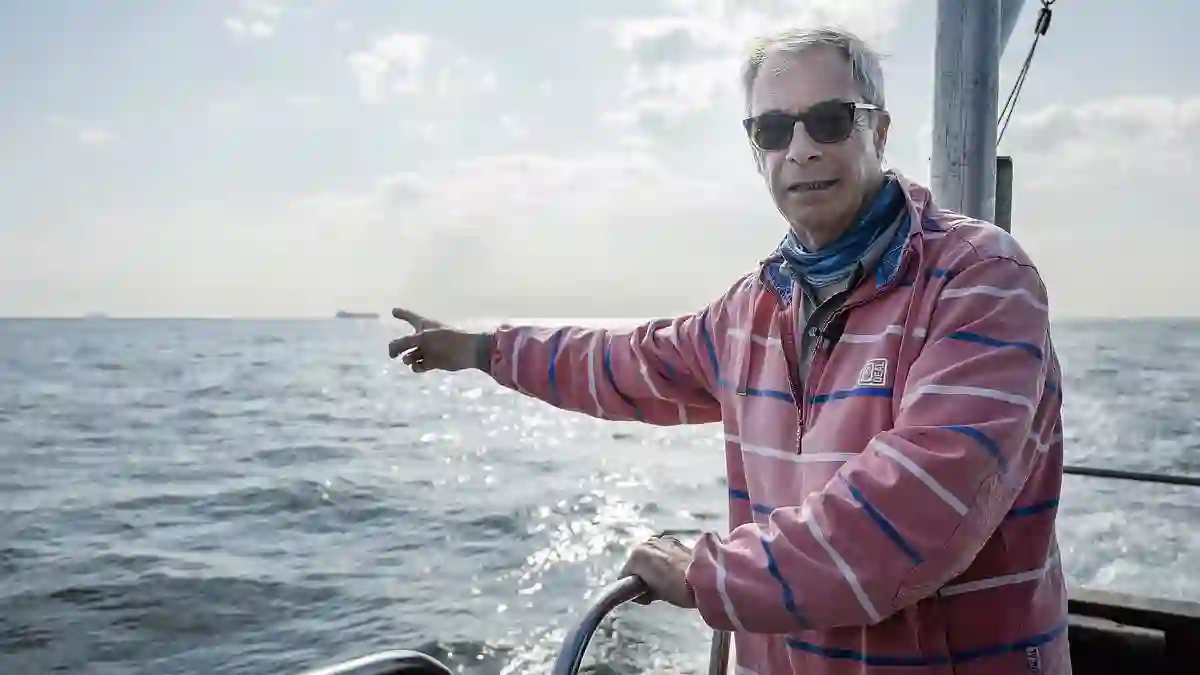At 5 a.m., while most of Britain was still asleep, Nigel Farage boarded a small boat off the coast of Dover.
His mission? To witness first-hand what he believes is the stark reality of Britain’s ongoing migrant crisis—and to send a message on the very day Prime Minister Keir Starmer was meeting with French President Emmanuel Macron.
What he saw during that trip, he claims, wasn’t unusual at all—just another day of dinghies arriving in UK waters, escorted by French naval vessels and handed over to Britain’s Border Force like clockwork.
Boats, Transfers, and a Costly System
Farage says it didn’t take long before a small dinghy came into view, shadowed by a French navy boat.
The migrants on board were passed over to British officials, who arrived in their own vessel from Ramsgate.
But what caught Farage’s attention was the peculiar detail that the French appeared to take back the life jackets they had provided to the migrants.
Beyond the optics, Farage zeroed in on the costs.
The catamaran used to retrieve empty dinghies reportedly costs around £6,000 per day.
Add to that the expense of running high-tech Border Force vessels, trained staff, surveillance drones, hotel stays for migrants, and administrative processing—he argues the true annual bill far exceeds the £4–5 billion figure often cited.
The Numbers, the Doubt, and the New Deal
Farage is openly skeptical about Prime Minister Starmer’s newly announced deal with Macron, which proposes to detain and return migrants crossing the Channel to France, while Britain agrees to accept others who didn’t enter by boat.
“No numbers have been mentioned,” Farage notes, “but I suspect the deal will cover only a tiny percentage of the 44,000 migrants who’ve arrived since Labour took office.”
He doubts the effectiveness of the plan, arguing that the European Convention on Human Rights—still embedded in UK law—will enable lawyers to challenge deportations, leaving the agreement toothless in practice.
Macron’s Comments Spark Frustration
According to Farage, Macron didn’t just sit down for a meeting—he took a jab at Britain too.
The French president reportedly blamed Brexit for making it harder for the UK to manage illegal migration.
Farage, however, believes the real failure lies not with Brexit, but with successive British governments that haven’t properly tackled the issue.
He suggests Starmer should’ve stood firm and said that any migrant arriving by boat will be sent back—not just to France, but to their home countries.
In his view, Macron’s critique and the timing of the French navy escorting migrants as Starmer announced the deal were “ironic” and “insulting.”
National Security Risks and Legal Loopholes
Farage raises deeper concerns about security.
He cites the recent arrest of three Iranian men accused of plotting to attack the Israeli embassy in London.
Reports suggest they had entered the UK via small boats—something Farage finds especially alarming given that Iran, according to UK intelligence, poses a national threat on par with Russia.
Citing statistics from the Migration Observatory, he points out that nearly one in five small-boat migrants is from Iran, and that some of these individuals may pose a danger to public safety.
Grooming Gang Concerns and Prison Figures
The controversy doesn’t stop at terrorism fears.
Farage references a report from Baroness Louise Casey, which links a number of ongoing grooming gang investigations to migrants and asylum seekers.
He also points to an analysis showing people who arrive in the UK illegally are 24 times more likely to end up in prison compared to the general population.
“These aren’t just administrative oversights or isolated cases,” he argues.
“We’ve got a system that’s allowing people to stay, settle, and in some cases commit serious crimes.”
A Call to Detain and Vet Every Arrival
Reflecting on what he witnessed during his Channel crossing, Farage says the boat carried 74 people—70 of them young men, with only four women and children aboard.
He believes they should all be detained immediately and thoroughly vetted.
“We need to know who they are and where they’ve come from,” he insists.
“Some of them could pose real dangers to our country.”
A Warning From the Water
Farage’s early-morning voyage was more than just a publicity moment—it was a pointed message to Britain’s government.
In his view, the current approach to illegal migration is ineffective, costly, and increasingly dangerous.
As new deals are brokered with European leaders and promises are made, he warns that without stronger borders and firmer enforcement, Britain risks losing not just control—but its national security.
